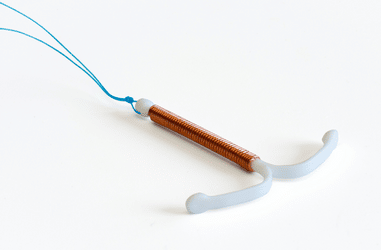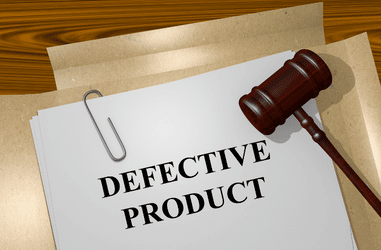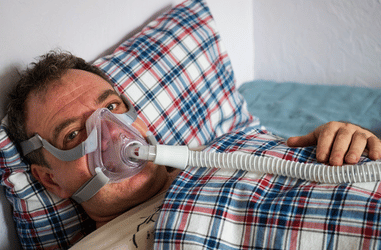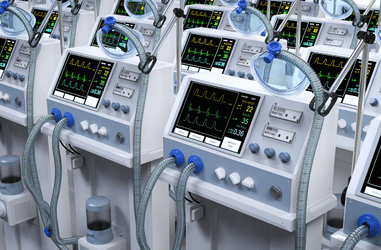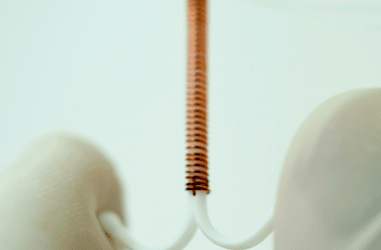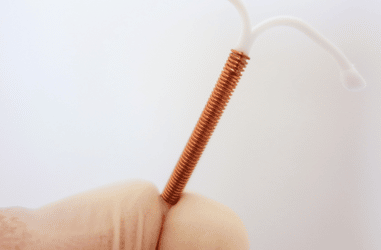Medical Devices
Millions of Americans depend on medical devices and equipment to improve their quality of life: pacemakers (devices implanted in patients’ hearts), artificial joints (for people who need knee or hip replacements), insulin pumps (for people with diabetes) — these are just a few examples. However, these devices can cause serious injury or death if they are defective.
The Food and Drug Administration (FDA) regulates medical devices, ensuring that all of them meet safety standards before being approved to use on the public market. In addition, the FDA has the authority to recall medical devices that pose an unreasonable risk of injury or death. Unfortunately, the FDA recall warnings are often too late to save many unsuspecting patients from the consequences of a defective medical device.
If you suffer injuries due to defective medical devices, you may have grounds to file a lawsuit against the liable party for your losses. The attorneys within our network can help you recover the compensation you deserve. Fill out our contact form today to start working with a lawyer.
Medical Device Failure in the US
The FDA is tasked with regulating medical devices and ensuring that they are safe for use in hospitals and other facilities across the country. However, despite its best efforts, many instances of medical device failure occur each year in the United States.
The FDA has received more than 1.7 million reports of injuries and nearly 83,000 reports of deaths due to complications from defective medical devices during the last decade.
Some defective devices that have led to health problems include:
Transvaginal Mesh
Although only one type of urogynecologic surgical mesh product has been recalled, the FDA issued postmarket surveillance study orders in 2012 that compelled numerous manufacturers to pull their mesh products from the market secretly.
As a result, many women across the country had significant post-surgery problems — including bleeding, infection, and situations in which the synthetic mesh sliced through the vaginal walls and began to damage adjacent organs. In the wake of the transvaginal mesh health challenge, thousands of women have filed lawsuits against the manufacturers Ethicon, C.R. Bard, Boston Scientific, and American Medical.
Knee Replacement Surgery
Millions of Americans undergo knee replacement surgery in an effort to alleviate their joint pain. Unfortunately, many people have faced complications from the replacement, as they have claimed:
- Faulty design
- Loosening
- Poor fit
- Packaging mistakes
- Lack of sustainability
Manufacturers, including Zimmer-Biomet, Attune, Smith & Nephew, DePuy, Stryker, and Wright Medical, have all experienced an uptick in the number of replacement knee recalls in the last several years.
Insulin Pumps
Patients with diabetes use insulin pumps to deliver insulin through a small tube inserted under the skin. Insulin pumps have been linked to serious complications, like hypoglycemia or hyperglycemia, when they pump too little or too much insulin.
By utilizing a subpar bone graft treatment technique for its patients, Medtronic, the largest medical technology business in the world, has previously put lives and health at risk in previous years. As a result, consumers have filed lawsuits against the company over the claimed failure of the MiniMed insulin pump device.
Heart Rate Monitors and Pacemakers
Pacemakers and defibrillators are implant devices that help regulate heartbeats. If they fail to operate properly, they can cause serious health problems and even death. Sometimes, these devices may fail due to design defects or not manufactured according to FDA standards.
Many Americans rely on pacemakers, defibrillators, and other cardiac devices, yet the continual stream of recalls on these devices is worrying. Major medical device cases against leading cardiac device manufacturers have involved Sprint Fidelis, Boston Scientific, Medtronic, and Guidant.
Hip Replacement Surgery
Hip replacement surgery is often performed on people who suffer from degenerative joint disease or other conditions that make it difficult to use their hips normally. In some cases, hip implants may fail due to design defects or because they were not manufactured according to FDA standards.
Hundreds of thousands of Americans have artificial hip surgery each year. Many high-profile medical device companies, including Biomet, Smith & Nephew, DePuy, Zimmer, Stryker, and Wright, have been the target of many lawsuits since then.
Who Is Liable for Defective Medical Devices?
Several different parties can be responsible for the injuries consumers sustain from defective medical devices. However, the first step in establishing who is liable for your injuries is determining which party played a role in the defect.
Many people who have been injured from a defective medical device or product probably don’t realize it right away because they think that doctors and hospitals are only responsible for providing the best possible care to their patients. However, this is not the case, as doctors and hospitals may not know about the defect until several years down the line.
Here are some of the most common types of parties that may be responsible:
Manufacturers
These manufacturing companies are usually large corporations that produce products ranging from diapers to heart valves. They design, manufacture, and sell products to distributors and other companies who then sell them to consumers.
Manufacturers have an obligation to ensure that their products are safe before they go on sale. If they fail to do so and someone is injured, they could be liable for damages under product liability law.
Distributors
These companies purchase products from manufacturers and resell them. Distributors typically don’t conduct any testing or research on their products before reselling them.
Instead, they rely on manufacturers’ representations about safety and quality controls during production. If manufacturers failed to ensure product safety or quality control, distributors would likely be liable for damages, as they are one of the main parties in the chain of distribution.
Unfortunately, proving liability for defective medical devices is often very difficult because many parties could be involved in the medical device distribution chain. Therefore, hiring a product liability lawyer may be beneficial in establishing the liable party.
Common Types of Defective Medical Devices
There are thousands of devices on the market today. Unfortunately, some are more likely to cause injury or death when they fail due to design defects or manufacturing errors.
The following are some of the most common types of defective medical devices:
- Defective design — The design of a product may be faulty or unsafe for use, leading to injury or death. Examples include surgical instruments with improper wiring that leads to electrocution or heart monitors with unfit software that misdiagnose heart attacks in patients.
- Defective manufacturing — A product may be manufactured incorrectly during its creation process, leading to injury when used as intended by consumers or patients. Examples include faulty surgical staplers that do not seal properly after being used on patients’ tissue or blood pressure cuffs that break apart while being used on patients’ arms.
- Breach of warranty. A breach of warranty occurs when a company violates its own warranty or fails to meet its obligations under a contract with its customers. In many cases involving defective products, manufacturers fail to provide adequate instructions for safe use or warn consumers about potential risks associated with using their products.
Recoverable Damages Under Medical Device Cases
Product liability law allows victims of injury caused by defective medical devices to seek compensation. That way, when a medical device injures a patient, they may have grounds for filing a lawsuit to recover damages.
If you have suffered an injury due to faulty medical equipment, you may be entitled to compensation for:
- Past and anticipated medical bills. This category involves all expenses related to treatment, including hospital stays, surgery, and rehabilitation, among other costs.
- Past and future lost income. If your injuries prevented you from working during your recovery period, you may be able to recover lost income, including tips, commissions, salary, hourly pay, paid time off, employee benefits, and business opportunities. If you can’t work for the foreseeable future, you can claim damages for the income you would have earned if you didn’t get sick or injured.
- Pain and suffering. Damages for pain and suffering include compensation for physical discomfort and mental anguish – such as anxiety and depression caused by the injury or your medical treatment.
- Loss of consortium. These are damages for loss of companionship, especially among the family members.
- Disability damages. When a defective device causes the inability to perform normal functions, you could file a claim on the grounds of disability.
- Wrongful death damages. If you lost your loved one to complications related to a defective medical device, you could recover the costs of their burial, funeral, and medical care.
The exact amount of money recoverable depends on the facts surrounding the case, but several factors may affect how much money can be recovered in a medical device case, such as:
- Under what circumstances did the injury occur?
- Was the injury temporary or permanent?
- For how long was the patient injured?
- What kind of treatment did the patient require, and what were the costs?
- How did the health complications affect you financially and non-financially?
What Can a Product Liability Lawyer Do for You?
If a defective medical device has injured you, you may be able to seek compensation for your damages. However, working through the legal process can be difficult, so you may want to seek out the help of a personal injury lawyer.
Proving Liability with Evidence
The lawyer will review your case and determine if there are any legal grounds for you to pursue compensation. If you do, your lawyer will gather evidence to prove and determine liability for your case. They may collect documentation, such as:
- The recall announcement of the medical device in question
- Your medical records
- Medical testimony linking the defective medical device to your injury
- Your own account of how the defective medical device has changed your life
- Photos or image screenings of the injury
Fighting for a Fair Settlement During Negotiations or Trial
Your attorney will also handle the settlement negotiations with the other party and/or their insurance company. Both sides will attempt to agree on the value of your damages. So, the defendant in your case may offer you a settlement without going to court. This outcome can save you time and money, but it can also give you less compensation than what you’re entitled to collect. A mass torts lawyer will safeguard your rights and can ensure that the other side doesn’t act in bad faith.
However, if you still cannot come to a settlement, your attorney will represent you in court and argue for favorable compensation for all damages you sustained due to faulty medical devices.
Meeting State and Federal Deadlines
Whether you decide to file your own lawsuit or join a multidistrict litigation (MDL), you must comply with certain deadlines, which are called the statute of limitations. It can be confusing to identify which ones apply to your case, but a lawyer can review your situation and determine how much time you have to take action.
However, you must know the government strictly imposes these deadlines, so act quickly. Failure to adhere to them may result in your forfeiture of pursuing compensation.
Get Help From a Product Liability Lawyer for Your Medical Device Injury
If a defective medical device has injured you or a loved one, you may be entitled to recover compensation for your injuries. A defective medical device attorney knows your state and federal laws regarding product liability and can help determine whether or not your case is strong enough to warrant pursuing legal action against the responsible party.
